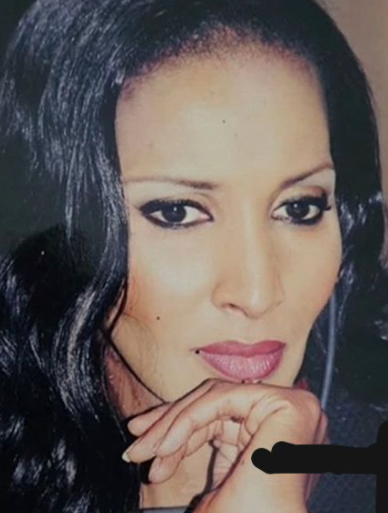
“May It Happen to Your Son!” — Divorce Lawyer Shares Shocking Message from Enraged Client’s Husband

In a bizarre and emotionally charged twist that reveals the raw pain and anger behind marital breakdowns, a Nigerian divorce lawyer has taken to social media to share a deeply unsettling message he received from the husband of a client he was representing in a divorce case. The lawyer, Festus Ogun, posted the text verbatim on his official X (formerly Twitter) handle, leaving the internet stunned by the sheer vitriol and personal nature of the attack.
The tweet, which has since gone viral, reads:
> “I need to stop taking divorce cases.
What that girl u are soliciting for did to me/ made me pass through. I pray a girl will do it to ur male son, brother, ur male generation by God grace.”
At exactly 5:21 PM, Festus Ogun dropped what many now describe as a “grenade of raw human emotion” onto the timeline. The post instantly became a hot topic, drawing thousands of reactions, quote tweets, and retweets from netizens both within and beyond the legal and relationship communities. Some called the message a display of toxic masculinity, others saw it as a cry for help, and many expressed concern over the emotional toll divorce litigation takes on legal professionals.
Festus, a well-known figure in legal and civic discourse, is respected for his bold takes on social justice and constitutional matters. However, this rare glimpse into the messier trenches of family law offered an entirely different picture of what lawyers go through behind closed doors. While he didn’t disclose the identity of the sender or details of the case, the message tells its own story — one riddled with betrayal, bitterness, and unchecked pain.
According to reactions gathered online, the man’s outburst is unfortunately not an isolated case. Many family law attorneys across Nigeria and beyond reported having faced similar emotionally charged and sometimes threatening messages from disgruntled parties who feel wronged by the outcomes of legal proceedings — even when the lawyers are just doing their jobs. A few even shared anonymous screenshots of hate messages and prayers for misfortune targeted at their own families.
But what makes this specific message stand out is the intensity and direction of the curse: a lawyer being wished pain, not just directly, but across his lineage — his son, brother, and “male generation.” It's the kind of targeted hatred that no professional training can quite prepare one for. It also reveals how, in moments of deep anguish, the lines between professional duty and personal grievance can become dangerously blurred.
The message has sparked debate on several fronts. On one side are those who sympathize with the man, arguing that men are often silent sufferers in emotionally manipulative marriages and that when they finally break, they’re met with judgment rather than support. On the other side are those who believe the man’s response was not only immature but misogynistic — turning a private marital conflict into a generational vendetta and wishing suffering on innocent people, simply because a lawyer chose to do his job.
Legal experts have weighed in on the matter, noting that lawyers have an ethical obligation to provide representation without fear or favour, even in emotionally charged situations. “The minute we allow clients' personal feelings to dictate how we approach our work, the legal system collapses,” says Barrister Lydia Chukwu, a family law practitioner based in Abuja. “That message wasn't just an attack on Festus Ogun. It was an attack on every professional who has ever stood up to advocate for the rights of someone going through pain.”
Psychologists have also offered insight, explaining that intense emotional trauma like divorce can bring out previously suppressed anger and despair, often directed at the nearest available target. In this case, the lawyer became the unfortunate lightning rod for a man unraveling under the weight of a collapsing marriage.
Festus Ogun’s decision to share the message, while controversial to some, has opened up a larger conversation about the emotional labor lawyers silently endure in handling sensitive cases like divorce. It raises critical questions: Should lawyers have mental health support systems? Should there be more public awareness about the boundary between legal duty and personal grievance? And most importantly, how do we ensure that legal practitioners are not subject to emotional blackmail or spiritual curses for simply doing their jobs?
Meanwhile, Festus has remained composed and professional in his public reactions. Aside from his initial post, he has not issued any follow-up comment, perhaps choosing to allow the public to digest and interpret the weight of the message on their own. But the implications linger, as many of his followers now wonder how frequently such messages are received and how they impact legal professionals long-term.
The story has also stirred up renewed interest in the dynamics of modern Nigerian marriages, especially the quiet rise in divorce rates and the cultural pressure to keep marital issues private. As social attitudes shift and more women begin to assert their rights through the legal system, lawyers like Festus are increasingly caught in the middle — representing clients seeking freedom, while simultaneously becoming the targets of those resisting that freedom.
Some netizens have begun referring to the message as a form of “generational curse projection,” a term meant to describe when people under emotional distress wish long-term harm on others due to a single experience. Others argue that no matter the pain one experiences, invoking a child or future generations in a curse crosses every ethical and moral line.
As the conversation continues to trend, one thing is clear: family law is not for the faint-hearted. And in a country where emotional trauma often goes unspoken, divorce lawyers are becoming unintentional therapists, priests, and punching bags all in one.
For now, Festus Ogun’s post stands as a reminder — not just of the psychological strain faced by those on the legal frontlines of broken homes, but of the depths of human emotion that divorce can unleash. In choosing to share his experience, he has peeled back the curtain on a profession many think they understand, but few truly do.
Whether this incident will mark a turning point in how Nigerians perceive divorce lawyers, or simply fade into the fast-moving tide of social media drama, remains to be seen. But one thing is certain — the message, and the pain behind it, won’t be forgotten anytime soon.


